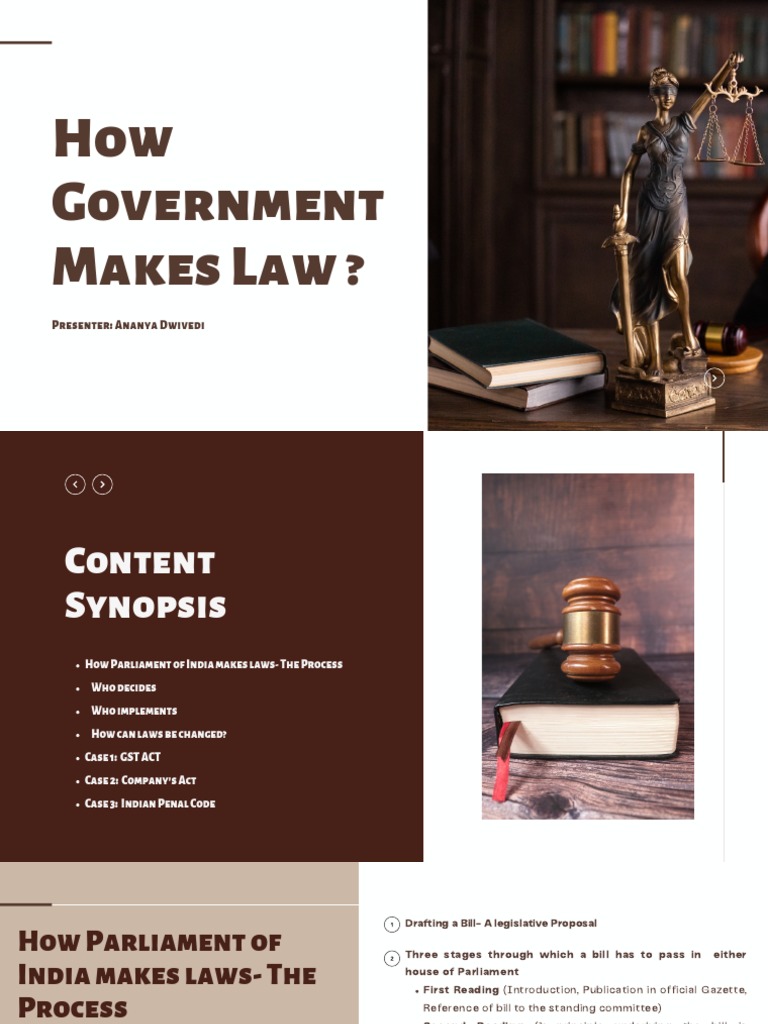The Baha’i Faith, a relatively young religion, offers profound insights into the nature of government and the creation of laws. Its teachings elucidate a holistic perspective on the relationship between humanity and governance, challenging traditional notions of authority and legal frameworks. This essay examines the question of who truly makes our laws from a Baha’i viewpoint, emphasizing the divine principles that inform the relationship between individuals and their governing bodies.
At the heart of Baha’i thought lies the premise that true authority cannot be derived from mere human caprice or historical contingency. Instead, laws should be rooted in the divine and grounded in principles that reflect the inherent dignity and oneness of humanity. The teachings of Baha’u’llah, the founder of the Baha’i Faith, advocate for the sanctity of justice, emphasizing that laws ought to serve the welfare of the community and the advancement of civilization.
One fundamental principle is the concept of the “House of Justice,” a governing body elected by the community, which embodies collective decision-making devoid of authoritarian overtones. This model emphasizes democratic processes, advocating for an inclusive and participatory approach to governance. Such an assembly, acknowledged within the Baha’i community, is seen as instrumental in enacting laws and policies that are in harmony with spiritual and ethical standards.
The Baha’i view espouses that governments are not merely collections of individuals wielding power; instead, they must act as custodians of the public good. The legitimacy of any law hinges on its alignment with divine justice. Consequently, lawmakers are tasked with creating legislation that is informed by ethical considerations, promoting unity and understanding among diverse populations. This perspective foregrounds the moral obligation of governments to cultivate an environment conducive to the flourishing of all citizens.
Moreover, Baha’i teachings illuminate the interplay between individual conscience and legislative frameworks. According to Baha’i beliefs, laws should encourage personal development and moral accountability. They are not merely tools of enforcement but are vehicles for ethical proliferation. Individuals are encouraged to reflect on their responsibilities to society, highlighting the reciprocal relationship between citizen engagement and governmental efficacy. This dynamic underscores the importance of civic education in fostering a populace that not only understands the law but also appreciates the moral imperatives underlying it.
The Baha’i Faith espouses a vision where laws evolve in tandem with the needs and aspirations of society. Historical precedent and societal shifts necessitate that laws cannot remain static; they must be adaptable, evolving to encompass new understandings of justice and equity. Central to this evolution is the recognition of universal human rights—an essential dimension of Baha’i teachings that advocates for the protection and upliftment of all individuals, irrespective of race, gender, or religion.
Furthermore, the Baha’i perspective encourages the prioritization of consultation as a mechanism for decision-making. This practice transcends mere dialogue, embodying a collaborative endeavor that seeks to harmonize diverse viewpoints. Baha’is are taught that through mutual respect and consensus-building, superior decisions can emerge that reflect the collective wisdom of the community. Consequently, this principle of consultation serves not only as a means for legislative discussion but also as a guiding ethic in all facets of life.
The role of religion in government is another critical aspect worthy of examination within the Baha’i framework. Baha’is advocate for the essential separation of religion and state, which is often misunderstood. It does not imply the exclusion of spiritual values from governance; rather, it mandates that laws should be formed through rational discourse and evidence-based approaches while still drawing upon ethical principles inspired by spiritual teachings. In this view, morality informs legislation without mandating dogma or sectarian allegiance.
In dire contrast to the ideologies that promote conflict and division, the Baha’i teachings promulgate a vision of unity and collaboration among nations. The establishment of global governance structures that transcend national borders is advocated as a means to address global challenges. The Baha’i perspective recognizes that in our increasingly interconnected world, the complexities of governance must be met with innovative frameworks that prioritize global well-being over parochial interests.
In summation, the Baha’i teachings provide a thoughtful and comprehensive lens through which to view the process of lawmaking and governance. They advocate for a system that is intrinsically linked to justice, emphasizes the collective responsibility of citizens, and adapts to the evolving needs of society. Understanding who truly makes our laws is, therefore, not merely an inquiry into the mechanics of governance; it is an exploration of the ethical foundations that underpin those laws. In fostering a world characterized by equity, justice, and unity, the Baha’i Faith manifests a profound vision for the future of humanity and the laws that govern it. As individuals engage with these teachings and the corresponding principles of governance, a transformative approach to societal organization can emerge, one that enshrines the dignity and aspirations of every person.
